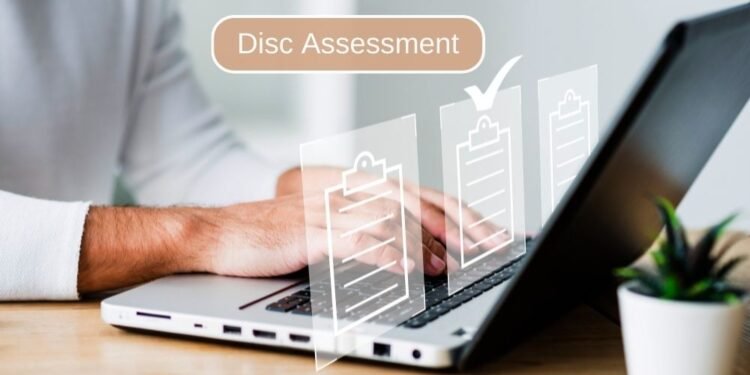What is DISC?
DISC is a behavioral assessment tool designed to measure the preferences and tendencies of individuals in various situations. It categorizes people into four primary personality types based on their behavioral traits and communication styles. Understanding DISC profiles can provide valuable insights into how individuals interact with others and approach tasks.
Importance of understanding DISC profiles
In both personal and professional settings, effective communication and collaboration are essential for success. By recognizing and appreciating the differences in how people think, feel, and behave, individuals and teams can enhance their relationships, productivity, and overall effectiveness.
The Four DISC Personality Types
Dominance (D)
The Dominance personality type is characterized by assertiveness, confidence, and a focus on results. Individuals with a Dominance style are often decisive, direct, and goal-oriented. They thrive in challenging situations and are natural leaders who are not afraid to take charge.
Influence (I)
The Influence personality type is marked by sociability, enthusiasm, and optimism. People with an Influence style are outgoing, persuasive, and thrive on social interactions. They are natural communicators who enjoy building relationships and motivating others.
Steadiness (S)
The Steadiness personality type values stability, harmony, and dependability. Individuals with a Steadiness style are patient, supportive, and prefer a calm, predictable environment. They excel in roles that require empathy, cooperation, and attention to detail.
Conscientiousness (C)
The Conscientiousness personality type is characterized by precision, analytical thinking, and a focus on quality. People with a Conscientiousness style are systematic, thorough, and detail-oriented. They excel in tasks that require accuracy, planning, and organization.
Understanding Your Own DISC Profile
Taking the DISC assessment
The DISC assessment typically consists of a series of questions designed to measure various aspects of an individual’s behavior and preferences. These questions may cover topics such as communication style, decision-making preferences, and interaction with others.
Interpreting your results
Once you have completed the DISC assessment, you will receive a detailed report outlining your dominant personality traits and communication preferences. This report can provide valuable insights into your strengths, areas for development, and how you can adapt your behavior to better interact with others. For more information please visit https://practicestrategies.net/disc-profile-made-simple/
Applying DISC Profiles in Various Aspects of Life
Personal relationships
Understanding your own DISC profile and those of others can improve communication, reduce conflicts, and strengthen relationships. By recognizing and respecting differences in personality styles, individuals can build deeper connections and navigate challenges more effectively.
Workplace dynamics
In the workplace, DISC profiles can help teams collaborate more effectively, resolve conflicts, and leverage each other’s strengths. By recognizing the unique contributions of each personality type, organizations can create a more inclusive and productive work environment.
Leadership development
Effective leaders understand their own DISC profile and how it influences their leadership style. By adapting their approach to suit the preferences of their team members, leaders can inspire, motivate, and empower others to achieve their full potential.
Tips for Effective Communication with Each Personality Type
Tailoring your communication style
When communicating with individuals of different DISC profiles, it’s essential to adapt your approach to resonate with their preferences. For example, when interacting with Dominance types, be direct, concise, and focused on results. In contrast, when engaging with Influence types, be enthusiastic, supportive, and emphasize collaboration.
Building rapport
Building rapport is essential for effective communication and relationship-building. Regardless of the individual’s DISC profile, active listening, empathy, and authenticity are key components of building trust and establishing meaningful connections.
Advantages of Utilizing DISC Profiles
Enhanced self-awareness
By understanding your own DISC profile, you can gain valuable insights into your strengths, weaknesses, and communication style. This self-awareness enables personal growth, improved relationships, and greater success in both personal and professional endeavors.
Improved team collaboration
When teams understand and appreciate each other’s DISC profiles, they can leverage their diverse strengths and perspectives to achieve common goals. By fostering a culture of collaboration and respect, organizations can unlock the full potential of their teams and drive innovation and performance.
Overcoming Challenges in Communication and Collaboration
Addressing conflicts
Conflicts are inevitable in any relationship or team dynamic. By understanding the underlying causes of conflicts and using effective communication techniques, such as active listening and empathy, individuals can resolve conflicts constructively and strengthen relationships.
Bridging differences
Individuals with different DISC profiles may have contrasting communication styles and preferences. By recognizing and appreciating these differences, individuals can find common ground, adapt their communication approach, and foster understanding and harmony.
Real-Life Examples of DISC Profiles in Action
Case studies
Real-life examples of DISC profiles in action demonstrate how individuals and teams have applied their understanding of personality types to achieve success in various contexts. These case studies highlight the practical benefits of using DISC profiles in personal and professional settings.


















